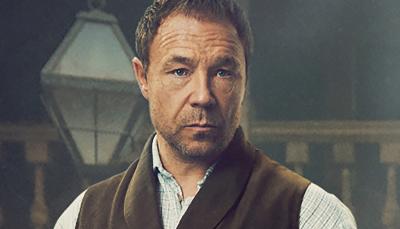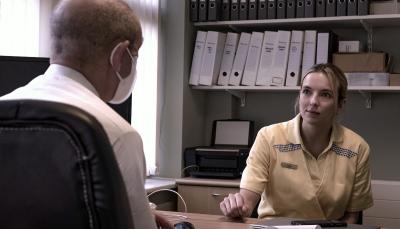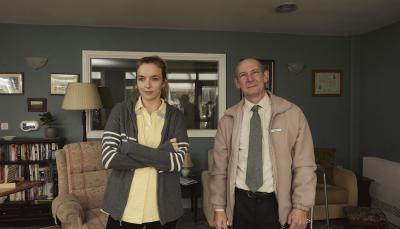Jodie Comer's Riveting Performance is the Highlight of COVID Drama 'Help'
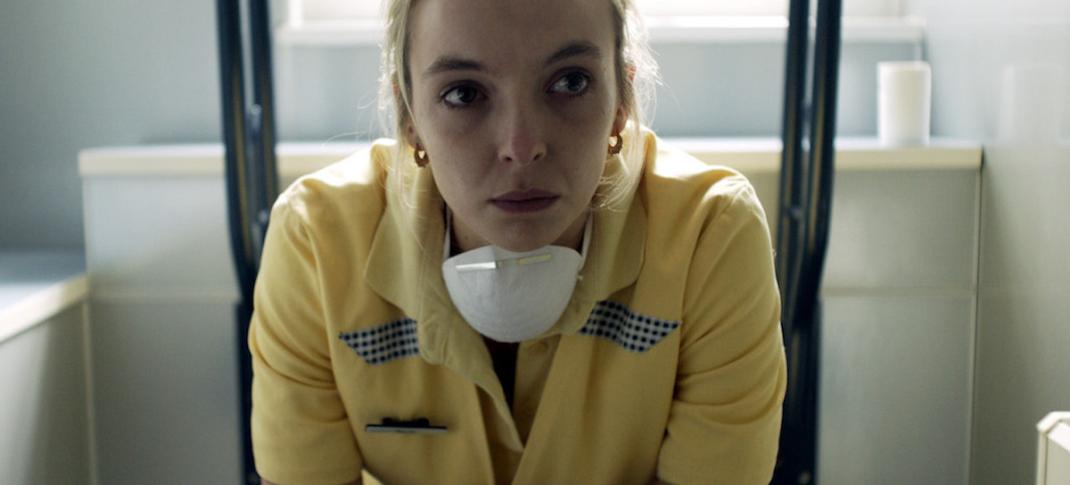
Jodie Comer as Sarah-Help_Season 1-Photo Credit:Brian Sweeney/AcornTV
Copyright © The Forge/BBC
It's hard to know whether it's too soon for a drama like Help to exist. With the latest wave of yet another coronavirus variant circling the globe at rapid speed, I'm not sure that any of us are feeling particularly eager to watch a film about the unique horrors of the pandemic's earliest, most brutal days right now. Yet, attention must be paid and the drama's unflinching honesty about its nightmare subject matter is not only worth watching but may well leave many of us feeling guilty about our performative need to clap for health care workers two years ago without providing them any sort of tangible help.
The film follows the story of Sarah (Jodie Comer), a formerly troublesome and aimless young woman who has come to her calling of caregiving by what one might charitably call the long way round. Yet, despite the fact that she's only just started her career at the Bright Sky home, she's clearly found a vocation. She doesn't mind the long hours or the hard work and has an obvious gift for building a rapport with the patients in her care, particularly the sweet, kind-hearted Tony (Stephen Graham), a fortysomething man with young-onset Alzheimer's who likes to wander off the campus when he forgets himself.
Their offbeat, genuine bond is sweet and charming enough to power an entire feature-length drama on its own, instead, it's used as the emotional anchor that centers the rest of the film as a series of steadily compounding problems--lack of supplies, understaffing, the general societal disinterest in patients like these left in places like this--combine to create a worst-case scenario that surely could have been avoided had anyone with the power to change things actually listened to the people on the ground doing the caring.
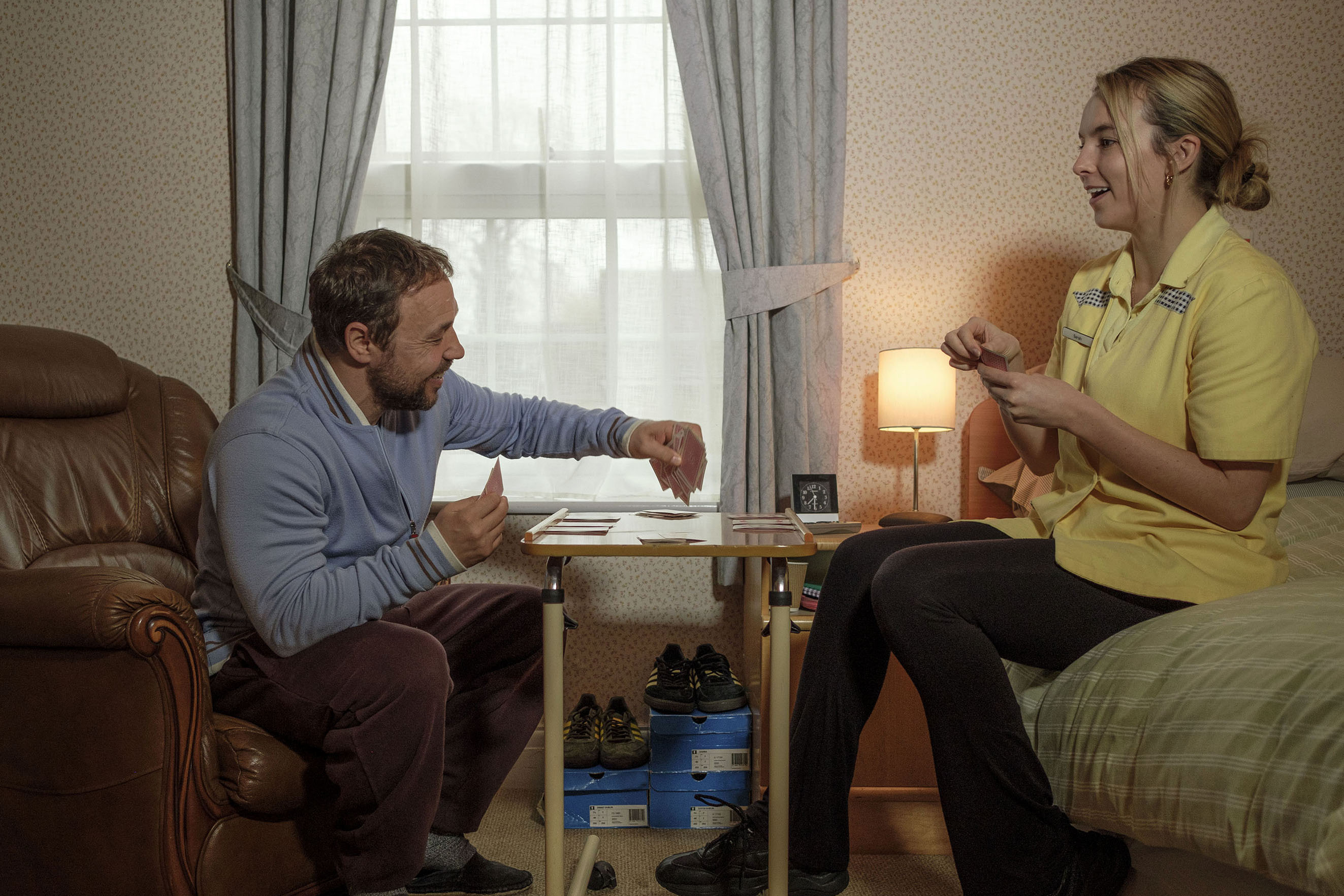
And Help definitely doesn't pull any punches when it comes to the horrors Sarah and her colleagues are facing. The creeping dread and steadily escalating tension from the first moment a transfer patient arrives--flanked by an ominous hazmat suit-wearing set of ambulance drivers who ask where the Bright Sky workers' masks are--quickly becomes nigh on unbearable, as a series of the facility's regulars slowly start coughing themselves.
From wearing trash bags as make-shift PPE gowns to fumigating the taped-closed rooms of dead patients to enlisting the help of healthier residents to care for their sicker neighbors, this is a film that forces you to look confront precisely how ill-equipped and unprepared our society and our healthcare systems, in particular, were for this crisis. A segment near the mid-point of the film, in which Sarah is left all alone to manage the Bright Sky facility overnight as a COVID-stricken elderly man slowly grows worse and worse, and it becomes increasingly clear that no help is coming to aid her--or him--from any front is truly agonizing viewing.
Comer's quiet unraveling throughout Sarah's literal dark night of the soul is just one facet of what is an all-around powerhouse performance. One, I think, that far too few people will actually see, given Help's grim subject overall matter (and the truly bizarre third act that occasionally makes you wonder if we've accidentally wandered into a different movie), and that's a shame, because Comer's range here is as good as it's ever been, from Sarah's escalating fear and frustration to her anxious guilt over her decision to enlist a confused Tony to help her help others and her incandescent, completely justified rage at the system that's not only betrayed her and her colleagues but left everyone they've been charged with caring for to the proverbial wolves.
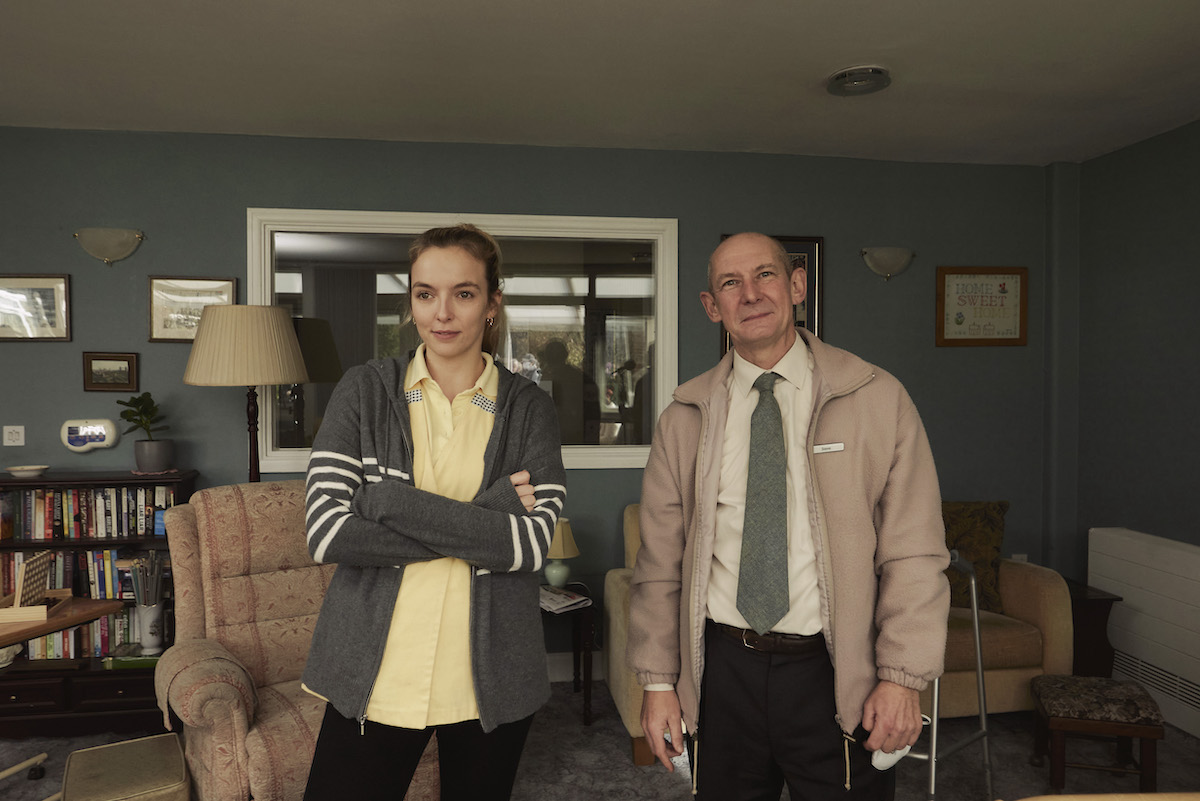
The film's third act features a weird swerve into what is essentially pointless melodrama, and it's either going to work for you or it isn't. This is no slam on the performances of either Comer or Graham who continue to sell the bizarre narrative twist with as must gusto as they're capable of. And the thing is--the third act contains seeds of another movie, another story that's likely worth exploring in its own right. But, for me, it just doesn't mesh that well with the one this movie had been trying to tell up until this point.
Still, given how vital and necessary the first two-thirds of Help is, the fact that it doesn't quite stick the landing doesn't negate its status as an important and memorable first attempt to reckon with our collective COVID tragedy onscreen. And the ending isn't what you're going to remember about this film, anyway. What you will--what we all should---take away from it is that sometimes perhaps there aren't any good choices, and we're all stuck, adrift, making the best decisions in the moment that we can with the limited resources available to us at the time. But the situations that Sarah, and other caregivers like her, found themselves in, didn't have to happen. Things didn't have to be this way.
And the point of telling stories like this is not just to remember those we lost in that devastating first wave of COVID. It's to inspire us to do our best to make sure it doesn't happen again.
Help is now streaming on Acorn TV.


